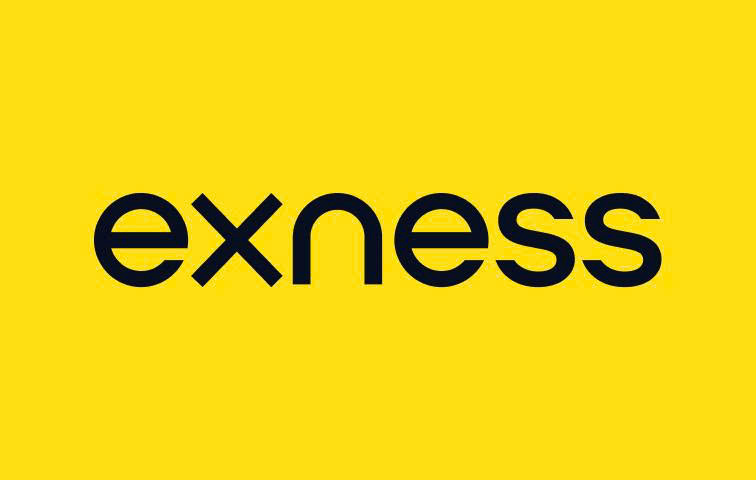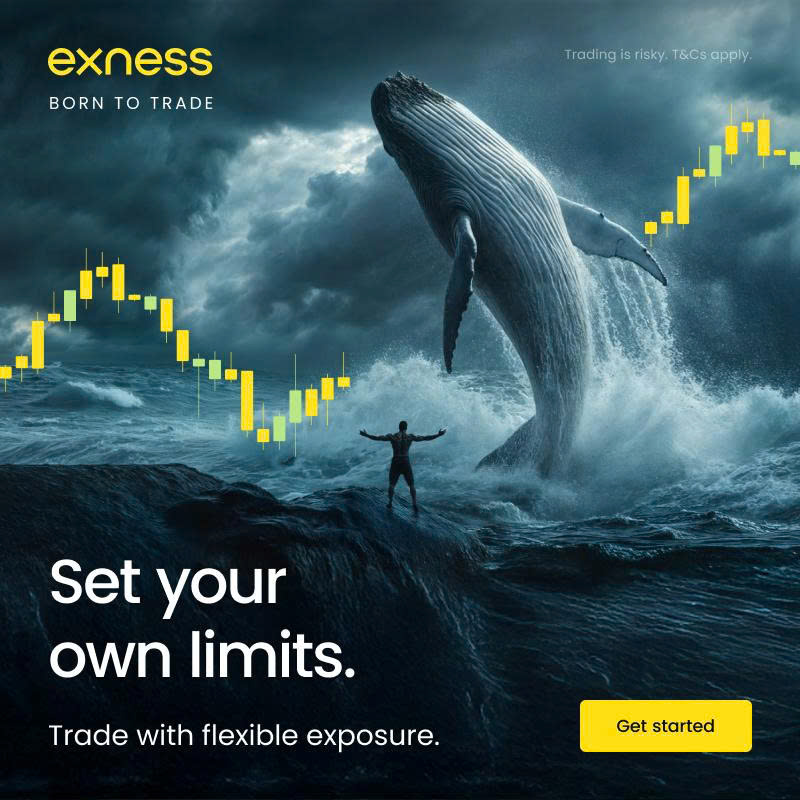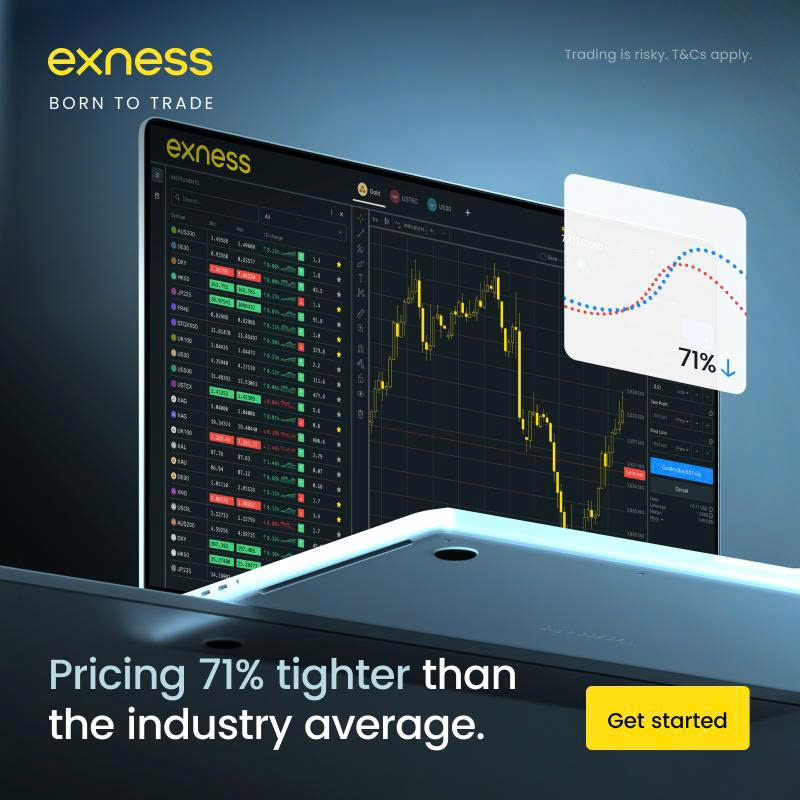
9 minute read
Is Exness Regulated in Dubai? A Comprehensive Guide for Traders
from Exness
by Exness Blog
Dubai, a global financial hub, has become a magnet for forex and CFD traders seeking opportunities in the dynamic Middle Eastern market. Among the many brokers vying for attention, Exness stands out as a globally recognized name. But a critical question lingers for traders in the United Arab Emirates (UAE): Is Exness regulated in Dubai? This article dives deep into Exness’s legal status, regulatory framework, and suitability for UAE traders, providing a clear and actionable guide for both novice and experienced investors in 2025.

💥 Trade with Exness now: Open An Account or Visit Brokers 🏆
Introduction to Exness: A Global Forex Leader
Founded in 2008, Exness has grown into one of the world’s leading forex and CFD brokers, serving over 1 million active clients and processing a monthly trading volume exceeding $4 trillion. With its headquarters in Cyprus, Exness offers a wide range of financial instruments, including forex pairs, commodities, indices, stocks, and cryptocurrencies. Its competitive features, such as ultra-tight spreads starting at 0.0 pips, high leverage options, and user-friendly platforms like MetaTrader 4 (MT4) and MetaTrader 5 (MT5), have made it a favorite among traders worldwide, including in Dubai.
However, in a highly regulated market like the UAE, the question of legality and regulation is paramount. Traders want assurance that their funds are secure and that the broker operates within a trustworthy framework. So, let’s explore whether Exness is a legal and regulated option for traders in Dubai.
The Importance of Regulation in Forex Trading
Before delving into Exness’s status, it’s crucial to understand why regulation matters in forex trading. Regulation ensures that brokers adhere to strict standards, protecting traders from fraud, mismanagement, or unethical practices. Key benefits of trading with a regulated broker include:
· Fund Protection: Regulated brokers segregate client funds from their operational accounts, reducing the risk of loss in case of insolvency.
· Transparency: Regulatory oversight ensures fair pricing, accurate reporting, and ethical trading practices.
· Dispute Resolution: Regulated brokers are accountable to authorities that provide mechanisms for resolving trader disputes.
· Market Integrity: Regulation prevents manipulative practices, fostering a fair trading environment.
In Dubai, a city known for its robust financial ecosystem, regulation is taken seriously. Traders must ensure their chosen broker complies with local laws to safeguard their investments.
The UAE’s Regulatory Landscape
The UAE has a sophisticated financial regulatory framework overseen by multiple authorities, each governing specific regions or sectors. Understanding this landscape is essential to determining Exness’s legal status in Dubai. The key regulatory bodies include:
1. Dubai Financial Services Authority (DFSA)
The DFSA regulates financial services within the Dubai International Financial Centre (DIFC), a financial free zone in Dubai. It enforces strict standards for transparency, client fund protection, and anti-money laundering (AML) compliance. Brokers operating within the DIFC must hold a DFSA license, which requires adherence to rigorous capital requirements, regular audits, and investor protection policies.
2. Securities and Commodities Authority (SCA)
The SCA oversees financial markets and brokerage services across the UAE mainland, outside the DIFC. It regulates forex brokers, ensuring fairness, transparency, and investor protection. SCA-licensed brokers must comply with UAE laws, including KYC (Know Your Customer) and AML regulations.
3. Central Bank of the UAE (CBUAE)
The CBUAE regulates banking and financial institutions, including those involved in forex transactions. It ensures monetary stability and enforces guidelines for foreign exchange trading across the UAE.
4. Financial Services Regulatory Authority (FSRA)
The FSRA, part of the Abu Dhabi Global Market (ADGM), regulates financial activities in this free zone. Like the DFSA, it imposes strict standards for brokers operating within its jurisdiction.
Forex trading is fully legal in the UAE, both within free zones like the DIFC and ADGM and on the mainland, provided brokers adhere to the relevant regulations. However, many international brokers, including Exness, serve UAE clients without a physical presence in the country, which raises questions about their regulatory status.
Is Exness Regulated in Dubai?
The short answer is: Exness is not directly regulated by the DFSA, SCA, or FSRA in the UAE. However, this does not mean it is illegal or unsafe for Dubai traders to use Exness. Let’s break it down:
Exness’s Global Regulatory Framework
Exness operates under multiple international licenses from reputable regulatory authorities, which provide a strong foundation for its credibility:
· Cyprus Securities and Exchange Commission (CySEC): License No. 178/12. CySEC is a Tier-1 regulator enforcing EU financial standards, including client fund segregation and transparency.
· Financial Conduct Authority (FCA): License No. 730729. The FCA, another Tier-1 regulator, is renowned for its stringent investor protection measures.
· Financial Services Authority (FSA): License No. SD025 (Seychelles). This regulates Exness’s operations in select jurisdictions.
· Financial Sector Conduct Authority (FSCA): South Africa.
· Financial Services Commission (FSC): Mauritius and British Virgin Islands.
· Central Bank of Curaçao and Sint Maarten (CBCS).
· Capital Markets Authority (CMA): Kenya.
· Jordan Securities Commission (JSC).
These licenses ensure Exness adheres to international standards, such as segregating client funds, implementing AML and KYC protocols, and undergoing regular audits. As a member of the Financial Commission since July 2021, Exness also offers compensation of up to €20,000 per client in case of insolvency.
Exness in Dubai: A Regulatory Gray Area
While Exness holds multiple international licenses, it does not have a DFSA or SCA license, meaning it is not directly regulated by UAE authorities. Instead, Exness serves Dubai traders as an offshore broker, primarily through its Seychelles-regulated entity, Exness (SC) Ltd. This is a common practice among international brokers, as many operate in the UAE without local licenses, provided they comply with global standards and do not misrepresent their regulatory status.
For traders outside the DIFC, using Exness is generally considered legal, as there is no explicit prohibition against trading with internationally regulated brokers. However, within the DIFC, DFSA regulations apply strictly, and only DFSA-licensed brokers are authorized to offer services. Since Exness lacks a DFSA license, traders within the DIFC should exercise caution and verify compliance with local laws.
Is Exness Legal in Dubai?
Yes, Exness is legal for Dubai traders to use, provided they are not operating within the DIFC. The absence of a DFSA or SCA license does not make Exness illegal; it simply means traders rely on its international licenses for accountability. Exness’s compliance with CySEC, FCA, and other regulators ensures a high level of security, making it a trusted choice for many UAE traders.

💥 Trade with Exness now: Open An Account or Visit Brokers 🏆
Why Choose Exness in Dubai?
Despite not being regulated by UAE authorities, Exness remains a popular choice for Dubai traders due to its robust features and global reputation. Here’s why:
1. Competitive Trading Conditions
· Tight Spreads: Exness offers spreads starting at 0.0 pips on accounts like the Raw Spread and Zero accounts.
· High Leverage: Up to 1:Unlimited leverage (subject to conditions), appealing to experienced traders.
· Low Fees: Commission-free trading on Standard accounts and low commissions on Pro accounts.
2. User-Friendly Platforms
Exness supports MT4, MT5, its proprietary WebTerminal, and the Exness Trader App, providing flexibility for traders on the go. These platforms offer advanced charting, technical indicators, and algorithmic trading capabilities.
3. UAE-Friendly Features
· Local Payment Methods: Exness supports bank transfers with UAE banks like Emirates NBD, Mashreq Bank, ADCB, RAKBANK, and Dubai Islamic Bank, as well as local payment options like Beam and UAE Exchange.
· Islamic Accounts: Swap-free accounts cater to UAE traders following Islamic principles.
· Arabic Support: 24/7 customer support in Arabic ensures accessibility for local traders.
4. Security Measures
Exness segregates client funds, conducts regular audits, and complies with AML and KYC regulations, enhancing trader confidence.
5. Educational Resources
Exness provides webinars, articles, and tutorials to empower traders with knowledge, making it ideal for beginners.
How to Start Trading with Exness in Dubai
For Dubai traders interested in Exness, here’s a step-by-step guide to get started:
· Verify Exness’s Status: Confirm Exness’s regulatory licenses on its official website exness.com or through regulators like CySEC or FCA.
· Register an Account: Visit the Exness website, provide your email, phone number, and basic details, and complete the KYC process with identification documents (e.g., passport or Emirates ID).
· Choose an Account Type: Select from Standard, Pro, Raw Spread, or Zero accounts based on your trading style.
· Deposit Funds: Use UAE-friendly payment methods like bank transfers or e-wallets. The minimum deposit varies by account type.
· Start Trading: Download MT4, MT5, or use the WebTerminal to begin trading forex, CFDs, or other instruments.
Pros and Cons of Using Exness in Dubai
Pros
· Globally regulated by top-tier authorities (CySEC, FCA).
· Ultra-tight spreads and high leverage options.
· Fast withdrawals, often processed instantly.
· UAE-friendly payment methods and Arabic support.
· Swap-free accounts for Islamic traders.
Cons
· Not regulated by DFSA or SCA, which may concern traders prioritizing local oversight.
· High leverage can be risky for inexperienced traders.
Comparing Exness to UAE-Regulated Brokers
For traders seeking local regulation, brokers like ADSS and Dubai Forex, regulated by the SCA, offer additional legal protections under UAE law. However, Exness’s international licenses, competitive conditions, and global reputation make it a strong contender. Traders must weigh the benefits of local versus international regulation based on their risk tolerance and preferences.
Tips for Choosing a Forex Broker in Dubai
· Check Regulation: Verify the broker’s licenses with reputable authorities, even if they are international.
· Assess Trading Conditions: Look for low spreads, flexible leverage, and suitable account types.
· Evaluate Support: Ensure the broker offers responsive customer service, preferably in Arabic.
· Test the Platform: Use a demo account to explore the broker’s features and platform usability.
· Review Payment Options: Confirm the availability of local deposit and withdrawal methods.
Conclusion: Is Exness a Good Choice for Dubai Traders?
Exness is a legal and reliable option for forex and CFD trading in Dubai, despite not being regulated by the DFSA or SCA. Its international licenses from CySEC, FCA, and other authorities, combined with robust security measures and UAE-friendly features, make it a trusted choice for many traders. However, those within the DIFC should consult with a financial advisor to ensure compliance with local regulations.
For Dubai traders seeking a broker with competitive spreads, high leverage, and a user-friendly experience, Exness is worth considering. Always conduct due diligence, verify licenses, and trade responsibly to maximize your success in the forex market.
💥 Note: To enjoy the benefits of the partner code, such as trading fee rebates, you need to register with Exness through this link: Open An Account or Visit Brokers 🏆
Read more:










